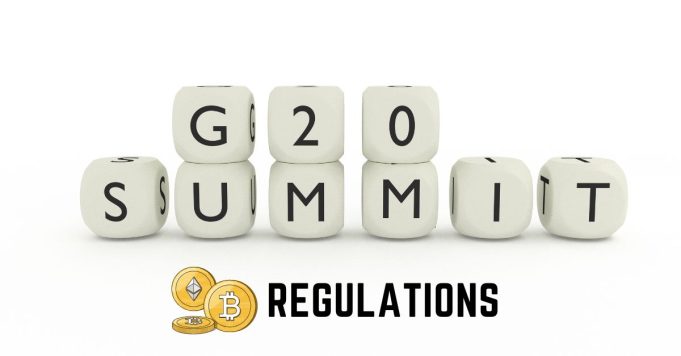The G20 Finance Ministers and Central Bank Governors have held discussions in India to create a global regulatory framework for crypto. India, as the holder of the G20 Presidency, announced that the basis of the global crypto rules will be formed on a new synthesis paper jointly produced by the International Monetary Fund (IMF) and the Financial Stability Board (FSB). This paper will provide a roadmap for the G20 to create a unified approach to regulating the crypto industry, ensuring that the world’s largest economies are on the same page when it comes to crypto regulations. The G20 is committed to creating a safe and secure environment for crypto users, while also protecting the interests of investors and consumers.
India’s Finance Minister Nirmala Sitharaman has announced that the synthesis paper on global crypto regulation will be submitted during India’s G20 Presidency, which culminates in September. The paper will be based on the Financial Stability Board’s expected paper in July, and will include the views of all developing countries. Sitharaman also mentioned that Canada’s central bank governor cautioned other members that crypto assets should not be given “regulatory seal of approval” without a well-thought-out approach and a framework for implementation. India is hoping to reach a consensus on global crypto regulation during its G20 Presidency.
India, as the holder of the Group of 20 (G20) Presidency, announced in Bangalore on Saturday that the basis of coming global crypto rules will be formed on a new synthesis paper, jointly produced by the International Monetary Fund (IMF) and the Financial Stability Board (FSB). Central Bank Governor Shaktikanta Das said that there has been a marked shift in perception around crypto assets by G20 nations in the past year, with a wide acceptance of the risks involved. This follows the collapse of several major crypto companies, including FTX, and a global contagion. The synthesis paper will provide a framework for the regulation of crypto assets, and will be a key factor in determining the future of the crypto industry.
The G20, a group of the world’s 20 largest economies, has announced plans to create a global regulatory framework for cryptocurrencies. Following three days of meetings in India, the G20 Finance Ministers and Central Bank Governors have agreed to form the basis of the global crypto rules on a new synthesis paper jointly produced by the International Monetary Fund (IMF) and the Financial Stability Board (FSB). The paper will provide guidance on how to regulate the crypto industry, ensuring the safety of investors and the integrity of the global financial system. The G20’s move to create a global regulatory framework for cryptocurrencies is a positive step towards the mainstream adoption of digital assets.
The G20 recently held meetings in India to discuss the creation of a global regulatory framework for cryptocurrencies. The meetings, attended by G20 Finance Ministers and Central Bank Governors, focused on establishing a coordinated set of rules for the crypto industry. The outcome of the meetings is expected to provide a roadmap for the regulation of cryptocurrencies on a global scale. The G20 is committed to ensuring that the crypto industry is properly regulated to protect investors and prevent money laundering and other illegal activities. The G20 is also working to ensure that the crypto industry is able to contribute to economic growth and development.
The Indian Finance Minister Nirmala Sitharaman has announced that India will submit a synthesis paper on global crypto regulation during its G20 Presidency which culminates in September. India has prioritised this issue for its G20 Presidency and is currently going through the study process to ensure informed discussions. Canada’s central bank governor has cautioned other members that crypto assets should not be given “regulatory seal of approval” without a well-thought-out approach and a framework for implementation. The World Bank has also stated that views of all developing countries should be included in any policy framework. India is hopeful that consensus around global crypto regulation will arrive during its G20 Presidency.
India’s Central Bank Governor Shaktikanta Das has noted a shift in perception around crypto assets by G20 nations in the past year, with a wide acceptance of the risks involved. India is set to submit a synthesis paper on the topic during its G20 Presidency, which culminates in September when India hosts G20 leaders from across the world. The paper will be presented by Indian Finance Minister Nirmala Sitharaman. The paper will focus on the risks associated with crypto assets and the need for global regulation. It will also discuss the potential benefits of crypto assets and how they can be used to promote financial inclusion. The paper will also explore the need for international cooperation to ensure the safe and secure use of crypto assets.
Finance Minister Nirmala Sitharaman has said that India is currently studying the global crypto regulation process and that something should develop by the end of its G20 presidency. Canada’s central bank governor has cautioned other members that crypto assets should not be given regulatory approval without a well-thought-out approach and a framework for implementation. Sitharaman added that the Financial Stability Board (FSB) is expected to release a paper in July, which will lead to a synthesis paper by September. India is hoping to reach a consensus on global crypto regulation during its G20 presidency.
India’s Finance Minister Nirmala Sitharaman has stated that the views of all developing countries should be included in any crypto policy framework. This comes after Central Bank Governor Shaktikanta Das noted a shift in perception around crypto assets by G20 nations in the past year. Das also noted the risks involved in crypto assets and the collapse of several major crypto companies, including FTX, and a global contagion. Sitharaman’s statement highlights the importance of including the views of developing countries in any crypto policy framework to ensure that the risks associated with crypto assets are addressed.













